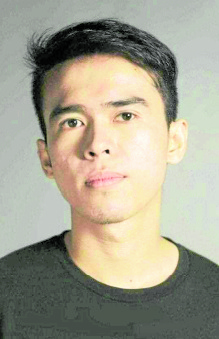First-time filmmaker Kevin Van Sulitas said he noticed that there weren’t a lot of films that tackle online classes and remote learning, so he decided to make one.
Sulitas considers his short film “My Day,” shot entirely in Escalante, Negros Occidental, an important project because “it reflects what’s actually happening in the provinces. We want to make the DepEd (Department of Education) and CHEd (Commission on Higher Education) realize that these children also have a life other than being a student, that there are a lot of fake news going around about the so-called success of online classes in the provinces.”
Sulitas further explained: “Internet access, finances, domestic problems, lack of electricity especially here in the province. These are only some of the factors that children engaged in remote learning have to deal with every single day. The only ones learning from the modules given to the students are their parents since they don’t actually answer them. Face-to-face classes in the provinces need to resume. This is what the children here want.”Sulitas’ film is one of 16 shorts in the “Eksena Cinema Quarantine: COVID-19 Filmmakers’ Diaries 2” or “ECQ2” that has been streaming on the Vimeo platform since Feb. 19.
The films chronicle the filmmakers’ stories amid varying restrictions and alert levels during the pandemic. The National Committee on Cinema, a subcommittee of the National Commission on Culture and the Arts (NCCA), has been subsidizing the project for two years now. Each filmmaker received a P75,000 cash grant.
In-between period
Filmmaker and educator Jean Claire Dy described the project as “a very good one for artists and filmmakers like me. I’m predominantly a documentary filmmaker so I couldn’t go on field as a result of the pandemic. This project and grant helped me explore other ideas and concepts that are doable, that didn’t require me to go on field and shoot a docu for a long period of time,” Dy, who directed the short film “Ritual of Affliction,” told reporters during a virtual media gathering.
“Another thing is that my film also explores the idea of liminality, that we’re in an in-between period of the pandemic. It’s something that our artists have been experiencing,” she explained. “They have one foot in the door and another one outside. They are caught in this space and don’t know what to make of it. Thirdly, the NCCA project had a part in making me heal. A close friend of mine died of COVID-19 last year. I dedicated this to him. The process of making this film played a huge part of my healing and accepting that his death is not for naught. He is going to be remembered for the work he has done as a filmmaker and as a journalist.”
First project
“Anima Sola,” about a trans woman seamstress in Tabaco, Albay named Nora, is filmmaker Xavier Axl Rocesvalles’ first project “outside the academic setting.”
Rocesvalles explained why he considered this short film important: “All of us have experienced being forced to stay at home. Inside our homes, we just go around in circles, uncertain of what will happen tomorrow. This film is all about expressing what I felt, what everyone felt, the past year. It’s also important to have a community that may watch our films and connects with us. This is also based on connection and companionship, especially in these trying times.”
Other participating filmmakers are: Joseph Andrew Abello (“Not a Short Film”), Roberto Acusar Jr. (“Pangamut Gayd”), Reyan Christian Amacna (“Pinitik”), Ara Mina Amor (“Pisti Pandemic”), Mervine Anjelo Aquino (“Palengke Day”), Brian Jonathan Bringuer (“Mel”), Demie Dangla (“Things I’ll Tell You”), Christopher Gozum (“Agno: Memories of a Forgotten River”), Jarell Serencio (“Paris sa Akong Kasingkasing”), Alyssa Mariel Suico (“See Us Come Together”), Arlie Sweet Sumagaysay & Richard Jeroui (“Mga Handum Nga Nasulat sa Baras”), Hubert Tibi (“Ilog Bikol”), and Jasper Villasis (“Sampung Minuto”). INQ
